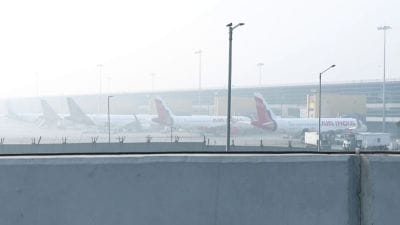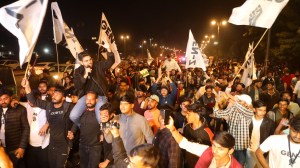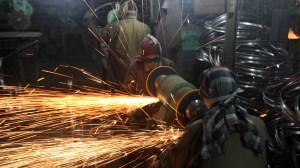It146;s still a burning issue
For a town that has courted such widespread attention, Godhra is reeling under neglect.

For a town that has courted such widespread attention, Godhra is reeling under neglect. For, the riots that placed the town at the centre of all political debate have also pushed the largest town of Panchmahals district into untold economic dereliction.
Despite being employed as a war-cry by all political parties in the coming elections, the issues of unemployment and lack of trade and development have been superseded by 8220;riots and the Sabarmati train8221;.
The battle for Godhra resembles a 1992 by-election this time, with the same candidates fighting each other, but from rival camps. So C.K. Raulji, the current Congress candidate, contested on a BJP ticket in 1992 and defeated Congress8217; s Prabhatsinh Chauhan, who is currently the BJP candidate. However, in 2002 elections, Chauhan by now in the BJP managed to defeat Congress8217; Raulji by 12,000 votes in the Kalol constituency. This, despite the fact that Panchmahals8217; constituencies comprise a significant 50 per cent Muslim population; it was the VHP8217;s inroads into rural Godhra that helped the BJP win in 2002.
Now, the BJP is desperate to retain Godhra, if only for the psychological edge. As senior BJP leaders say, 8220;Narendra Modi said that even if we win 130 seats, it is Godhra which will be spoken about.8221;
Traditionally, Godhra has always voted for a candidate rather than a political party. Raulji won the elections twice in a row, in 1990 and 1995, first under the Janata Dal and later as a BJP man. In fact, it was Raulji8217;s candidature that forced the BJP to replace sitting MLA Haresh Bhatt with Chauhan, the Minister for Tribal Affairs, and long-time BJP victor from Kalol.
For the voter in Godhra8212;Hindu, Muslim, tribal or OBC8212;riots have overtaken all issues of progress, as has been the case for the past five years. The city received its biggest blow when the Panchmahals Cooperative Bank, with 48 branches all over the district, closed down in 2003 because of poor performance. This was followed by the shutting down of the Agricultural Produce Marketing Committee, transport businesses and the migration of white-collar jobs to cities like Vadodara, Ahmedabad and Shehra.
The resentment is understandable among Muslims: those who escaped the riots were either displaced or lost their means of livelihood, even as a 100-odd Muslims, suspected to have set the Sabarmati train on fire, still languish in prison after being arrested under the Prevention of Terrorism Act. The Hindus8212;Patels, Darbars and OBCs8212;are equally discontented owing to the loss of business.
How the prevailing despair translates into votes now remains to be seen.
- 01
- 02
- 03
- 04
- 05































